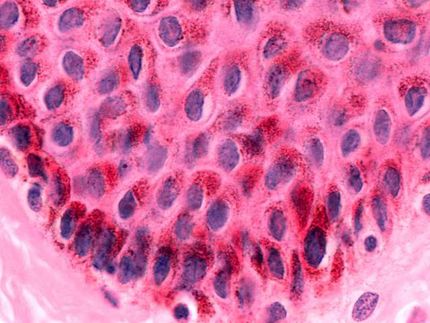MediGene and The Johns Hopkins University Sign Development Collaboration for First Vaccine Candidates from MediGene's AAVLP Platform
Examination of product candidates for the prevention of HPV-associated diseases
MediGene AG and The Johns Hopkins University, Baltimore, USA, have agreed to collaborate in the field of AAVLP vaccine technology. The objective of this collaboration is to test vaccine candidates derived from the AAVLP program for the prevention of HPV-associated cancer types, and in so doing to further advance the development of the AAVLP program. The vaccine candidates examined within the framework of this collaboration target at a number of carcinogenic human papillomaviruses (HPV) causing, for example, cervical cancer. The lead investigator will be Richard B. S. Roden, Ph.D., professor of Gynecology/Obstetrics and Oncology at Johns Hopkins University School of Medicine, one of the world's leading scientists in the field of HPV research.
Dr. Frank Mathias, CEO of MediGene AG, commented: "The cooperation with this internationally renowned and outstanding research institution is the first significant step in the advancement of our innovative AAVLP vaccine program. The acknowledged expertise of Dr Roden and his team will be invaluable in the testing of the first AAVLP vaccine candidates in an indication of high medical need."
In its AAVLP program, which is currently at the pre-clinical stage, MediGene is investigating the use of adeno-associated viruses (AAV) as a vaccine. The adeno-associated virus is non-pathogenic, i.e. it does not cause disease. The virus protein shell, the capsid, is suited for the production of so-called virus-like particles (VLP), which can be used as a basis for novel vaccines.
By inserting short antigenic peptides (B-cell epitopes) into the AAV capsid, a highly specific antibody reaction against selected target molecules can be induced in the body. These antibodies can protect the body (i.e. have a prophylactic effect) or act as a therapy against existing diseases.
MediGene is currently conducting research into the application of AAVLP technology for the treatment of cancer and viral infections, and is examining the possibility of using AAV libraries for the systematic identification of suitable vaccine candidates. The key benefit of this technology may be the possibility of transferring the efficacy of existing therapeutic antibodies directly into a vaccine.
Most read news
Other news from the department research and development

Get the life science industry in your inbox
By submitting this form you agree that LUMITOS AG will send you the newsletter(s) selected above by email. Your data will not be passed on to third parties. Your data will be stored and processed in accordance with our data protection regulations. LUMITOS may contact you by email for the purpose of advertising or market and opinion surveys. You can revoke your consent at any time without giving reasons to LUMITOS AG, Ernst-Augustin-Str. 2, 12489 Berlin, Germany or by e-mail at revoke@lumitos.com with effect for the future. In addition, each email contains a link to unsubscribe from the corresponding newsletter.






















































